- Home
- Helen Dunmore
Birdcage Walk Page 2
Birdcage Walk Read online
Page 2
The phrases galloped across my mind. All that long-dead emotion! Hearts bounding, eagerness, walking around the room – and it was all dead and gone, and no one left to know what any of it had meant. I would not have felt it so strongly, no doubt, if I had not been left myself, like the last speaker of a lost language that no one else understood.
The archivist was looking at me. I hoped that I had not spoken aloud.
‘There is a little more,’ he said.
‘Preserve this Letter, my dear Susannah, as we have done with every Word you wrote to us from France. We lodge all Correspondence with the Frobishers and I most Ardently Advise you to do the Same so that there will be a Memorial of these Perilous Times. For months Augustus has not picked up his pen. We can only console ourselves that our dear Julia did not live to see the Fate of her Unfortunate …
‘The paper is torn just here.’
‘Who was Susannah? Are her letters here too?’
‘As far as I know there are none. Possibly the Frobishers destroyed them all. Unfortunately, without a surname—’
‘Why were the times perilous?’
The archivist blinked, as if I had revealed an ignorance which forced him to reassess me. ‘These were radicals, remember. It was the time of the French Revolution.’
I peered at the edge of the letter. ‘Is that a “C”?’
‘It may be. Or possibly a “D”. The following letter may be an “H”, but I’m guessing now.’
‘Child, perhaps?’ I said. There were many such deaths recorded in the graveyard: baby after baby, given the same name, born and dead within the year.
‘It’s unlikely. We know that Augustus Gleeson had a son, Thomas, and that he survived to adulthood. Gleeson alludes to him in a treatise on education, and calls him his only child. As far as we know, Gleeson never remarried.’
For months Augustus Gleeson had not picked up his pen. I wished that Jack were here. I would have reached down and stroked his head, over and over, until my mind was quiet.
‘There are several of his pamphlets in the City Library,’ the archivist said.
‘Are there?’
‘He was quite well known in his day, I believe.’
‘But there’s none of her writing?’
‘Not as far as I know.’
I touched the piece of paper. The words were faded yet they still tumbled across the paper, eager, impetuous, alive. But they weren’t alive. The archivist and I were snuffling after something which no longer existed, like Jack in his hunt for imagined bones. Augustus had been left, as I had been left. But it was over for him: he was dead. They were all dead and they could no longer tell us what their words had been, before the paper had been torn across.
Even so, I touched the paper as if the heat of their lives might come off on my fingers.
1
June 1789
The night was thinning as he went down the donkey track to the quay with his tools over his shoulder. He had taken the long way round, in the dark, and was dressed as a labourer. His heavy boots were clogged with dirt. There had been rain in the night after the fine summer’s day. He wore his cap pulled down over his eyes, and a neckerchief muffled the lower part of his face.
There was the boat, tied up as he had left it. It wasn’t yet full tide but the water had reached the quay. It was black and oily-looking as the dawn began to spread over it.
He glanced around him. The quay steps were slippery but he went down them as fast as if they were dry, and put the spade and mattock in the bottom of the boat before covering them with canvas. It was getting light too quickly. There were ships hanging like shadows on the water, waiting for the tide. He pulled out the oars, settled them in the rowlocks, untied the mooring-rope and slid out on to the water. Before the tide could spin him round he dug in hard and pulled against it, pointing the bow across the river. There was mist on the dark meadows and on the woods beyond.
No one would notice him. He was a man on his way to work. A farm labourer or a quarryman from the stone quarries on the other side of the Gorge. He had taken a risk in leaving the oars in the boat overnight, but no one had touched them. The blades found the perfect angle and cut into the water, pulled strongly through it, released themselves, dipped again. He knew how to row, by God. He could do anything with his hands.
More and more the city sharpened itself in the light: the bulk of the Hot Well, the clutter of small boats and then the ships. But he was heading across, to the meadows. There was colour coming into everything: the brown, shining water, the run-off from his oars. She had said that the water was dirty and he had told her that it wasn’t dirt but the particles of sand and mud that hung in the water and made it rich with fish. That was a long time ago now.
The city behind him was coming to life. He felt it like a prickle on the skin of his back. Men walking down the same steps he’d trod, their bundles over their shoulders. Looking out at the water. Now, quickly, he dug with his right oar and the boat shot in where he knew the mooring-post was. There were duckboards laid over the soggy land closest to the water. He stepped ashore and tied up the boat. The boards squelched as he took off the canvas, lifted out the mattock and spade and hefted them over his shoulder again. He was on his way to work.
Through the wet meadow where cows stood on the higher ground. The smell of them drifting on the last rags of mist. It was going to be hot. He walked steadily but fast, across one meadow and the next, and then he climbed over a stile that led into the woods. The quarry path was well behind him now. He thought of stone for a moment, and the houses it would build; then he turned his mind away.
The undergrowth was still wet from last night’s rain. There was a rich smell with an edge to it. He was going into the old forest which had never been cut since men lived in their hill forts and watched for their enemies coming up the river. The trees had been coppiced but no more. He knew about such things. He had an interest in antiquarianism and the men knew to bring to him any object of interest that they turned up in the digging of foundations. But those hill forts had been set on the heights and he was deep in the woods, where the trees were thickest.
She hadn’t wanted to come so far, but he had told her about the nightingales, and she had put on her stout boots. There were glades, he said to her, where sunlight dropped down through the tall trees and made orchids grow.
He paused, looked at the oaks on the left of the path, the whitebeam on the right, and listened for the chink of metal on stone from the quarry. Perhaps it was still too early. He glanced behind him again. There was too much birdsong, and it muddled him, but this was the place. There was a gap in the undergrowth. He had not lied to her: there was a glade. He pushed through to it, dragging the mattock and spade. Twigs snapped at his face and he flinched.
He must have shut his eyes. When he opened them, there she was. She lay as he had left her, under a tree in the brambles and ivy. He had laid her out straight, and crossed her hands, and then he had wrapped his coat about her head. He had known that she would stiffen in a few hours, and that he would not want to see her face again. There she was. No one had come; he’d known that no one would come. It was his luck. There were no marks where he had dragged her, because he had lifted her in his arms and carried her.
This was the place. He was dry, and his heart beat hard. There would be water somewhere nearby but he could not stop to look for it now. The coat over her face was sodden with rain, and her skirts too, and her boots. There were spiders on her, and woodlice. She’d been lying there all night on her own. She could not see him now. He had pressed down her eyelids and then he had wound the coat over her face. It was a light summer coat and it moulded to her. He could not help being astonished that she was still there, even though he had placed her so carefully and marked the site in his mind so that he would be able to find it easily. He had half expected an empty glade with the first sun beginning to warm it and a cloud of gnats dancing.
He cut into the ground with his spade and carefully he
sliced and lifted the sods and laid them aside. The solid sheet of limestone did not run so close to the surface here. He would be able to dig just deep enough and then when she was buried he would heap the undergrowth over her. Already he was sweating as he stripped down to his shirt and began to dig. There were lumps of stone in the soil; he took the mattock to ease them out, and then laid them aside. Earwigs ran and white grubs squirmed as the light fell on them. Flies buzzed about his head. He shut out the thought that it was she who had brought them here. It was his own sweat that drew them. The earth smelled acrid but clean too. Twice or thrice he thought he heard something and he stopped, head up, alert, sniffing the sunlit air, but it was always a woodpecker or the rustle of birds and small animals in the undergrowth. There were butterflies now, speckled ones, emerging as the air warmed. They were dancing over her. They could smell a dead thing: he knew that.
He dug and dug. He would not let his mind loose, for fear of where it might skedaddle without him. His clothes stuck to him with sweat and his head throbbed from the heat or because he had not slept. Now he was going deep and standing inside the hole he had dug, loosening more stone with the mattock. It was a fusty, crawling place he had made and fear ran over the skin of his back as he bent and lifted, bent and lifted, faster and faster now, frantic to get the job done. He did not dare to look at her. It seemed to him that she might be sitting up, unwinding the coat from about her face, and watching him out of those eyes. She would pick the twigs and dirt off her dress, and the insects. She would put the spiders aside gently. That was what she did when spiders came into the house in the autumn months: she cupped them in her hands and tipped them outside. She never minded the tickle of their legs inside her fingers.
It was deep enough now. Not as good as a sexton would have done for her, but if he laid the stones over her no fox or badger would be able to dig her up.
It was hellish work getting her into the grave. She was cold and stiff. The broken sunlight glanced over her but it could not touch her. His back burned as he knelt to pick her up, and she was heavier than she had ever been. He staggered with her to the edge of the grave. She rolled stiffly in his arms and he thought that she meant to bring him down with her. He would lose his balance and fall into the grave and she would topple in after him, pinning him there. He would never emerge.
He hated her now. She had made him hate her. He pushed and shoved until he got her in, head at one end and boots at the other. She was on her side. He had wanted to lay her on her back, looking up at the sky, but he could not turn her now. He must remove his coat from around her head, he thought, but he could not bring himself to do it. The time for that had been when she was still lying under the trees, and he had not dared.
He began to fill in the grave. Until she was covered, he put in only soil, layers of soil which still teemed with disturbed life. Once he could not see her, he began to replace the stones he had dug up. He could not stop himself from brushing away the woodlice before he laid the stones in the grave. He fitted the stones together, the smaller and the larger, as if he were building a wall. She was covered again. Nothing could touch her. She would never push the stones back like her sheets and blankets in the morning, when she sat up and reached over her shoulder to untie her hair from its night plait. Once her hair was loose she shook it out until the cloud of it hid her face.
She was hidden from him now. He shovelled in more earth and more, right up to the lip of the grave. But he knew that it would settle and leave a dip in the ground, so he carried on shovelling and then he trampled the earth flat with his boots, shovelled again, trampled again. He could not prevent himself from feeling a stab of satisfaction that the job was well done. At last he took the sods he had set aside and fitted them back over the lid of the grave. Again he trampled and smoothed. The cuts he had made would soon heal themselves in the warm dampness after rain. He pulled the ivy forward, and then he stepped back to the edge of the little glade. He squinted, to see what a stranger might see if he also wandered far from the paths and pushed his way through the undergrowth.
The grave was apparent. In the surge of early summer growth it would soon disappear, but he could not take that risk. He gathered brushwood, intertwining it with brambles and ivy and laying it artfully so it looked as if the forest was moving of itself, out into the light. Now, he thought, now you can see nothing. He stank of sweat and earth. The butterflies were still there. They were high in the column of sun-warmed air, and they were dancing.
2
March 1792
I woke up first. His arm lay across me and I shifted a little but still it lay there, heavy and full of muscle, holding me down. My head cleared and I remembered how we had fallen asleep. My eyes settled to the darkness and found objects in it: the heavy lodging-house furniture that cluttered the room even though I had cleared out as much of it as I could. It seemed to breed in the night.
There were shadows everywhere. The shutters were open and the windows stared. There was the moon in the top right-hand pane.
But the moon was inside too. It had got into the bedroom while we were sleeping. Its light walked about over the bedstead, over the chest, the basin in its stand and the blue-and-white jug. It was a restless thing and I could not lie still.
I moved my legs a little. Our skin unpeeled, thigh from thigh. I was sticky. I wanted to wash myself, but his arm held me down. There was clean water in the jug. I wanted to pour some into my hands and drink it, and then fill the basin and wash myself.
He breathed softly, steadily. He was deep asleep and would not wake until dawn. Usually he rose before me, and often he was out of the house before I stirred. Last night he had drunk off a bottle of wine and for a while he snored, but he could always sweat out his drink.
The moon was growing stronger. It slid over the sheets and touched his face. I thought he must feel it for he muttered and heaved himself on to his side, pulling the blankets with him. He was turned away from me now, towards the window, and the weight of his arm had gone.
The air washed over my body. It was cool; cold even. I did not pull the blankets back over myself. Instead I lay there and now it was not only the air washing me but the moon too. I looked down my body and saw the curves and channels of it. It looked like something that had never been touched. It was my own, even though I ached and my thighs were sore.
He did not mean to hurt me but he was a strong man and did not always know himself.
Inch by inch, I slid away from him. The bed creaked, and then was still. I listened for any catch in his breathing, but it went on evenly, just the same. I raised myself on my elbows and saw how the room was packed with shadow and everything that was ugly by day was made fantastical by the moon. I would not go back to sleep now.
I swung my legs over the side of the bed. I stood up and the moonlight stood with me. The chill wrapped me around. I slipped past the end of the bed, went to the washstand and tipped the jug very gently, so that there would be no plash of water. The bowl filled. It was clean water and I leaned forward, scooped out a mouthful and drank. I had not known how thirsty I was until I swallowed, and then I must scoop up more water and more until it dripped over my chin and spilled in runnels down my body. I dipped both hands into the water now. This time I tipped back my head and let the water run over me. The cold made me shudder but my skin thirsted for it. Water ran over my breasts and belly and thighs. I dipped and lifted and dipped and lifted, careless of the water running over me and on to the floor. All the time the moonlight covered me too, following the stream of the water, penetrating every hollow of my body. I did not know what I felt. I knew that I was cold. I thought that there was water running over my face now and along my tongue and down the parched crevices of my throat.
There was a sound. A stifled sound, like someone trying not to cough. My heart jumped and I turned. He was lying on his side, just as before. He was still deep asleep, breathing steadily. But then I saw something glisten as the moonlight licked his face. His eyes were not quite
shut. He was watching me.
A shiver flickered over my skin. I had to fight not to cover myself with my hands. He had watched me like this once before, when I was washing myself and had left the door half open behind me. I didn’t know how long he had been standing there. That time I had cried out, ‘Diner, you startled me!’ and snatched my shift around myself, but he had come to me and pulled away the shift and stared me from from head to toe, saying:
‘You are mine, Lizzie. Why should you hide yourself from me?’
I did not know enough about marriage. Perhaps it was nothing for a husband to spy on his wife’s nakedness but I felt as if he had stolen a part of me.
The moon shone while he lay as still as a fox. I would not let him guess that I had seen the glint of his eyeball. I turned back to the bowl to take up one more scoop of water, but I could not drink. His eyes were on me, drying the water, pulling away the light. I would go back to bed, and close my eyes so that I too would appear to sleep.
In the morning Diner would pull on his boots, saying, ‘Lizzie, put me up some bread and fat bacon.’ He would eat it with the men and he would not taste it unless I put in a handful of pickled walnuts to please him. Tomorrow we would wake and live our common day.
Our day was almost spent when the bell rang and Philo rushed to tell me that Hannah was downstairs, waiting for me in the kitchen. It was late. I knew that Hannah hadn’t come to the front door because my husband might be at home and she did not want to meet him. I ran down, frightened. Hannah never visited at such an hour.
There she stood with rain dripping from her cloak on to the flags. ‘Your mother’s not well,’ she accused me.

 The Ingo Chronicles: Stormswept
The Ingo Chronicles: Stormswept The Deep
The Deep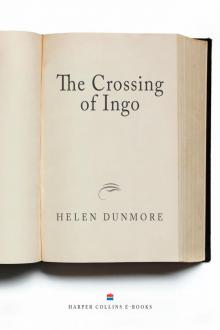 The Crossing of Ingo
The Crossing of Ingo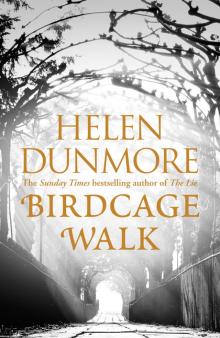 Birdcage Walk
Birdcage Walk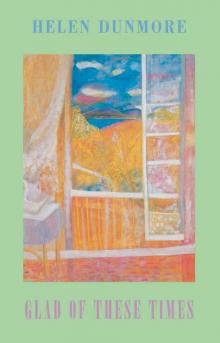 Glad of These Times
Glad of These Times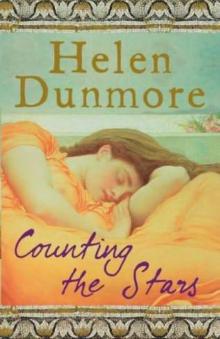 Counting the Stars
Counting the Stars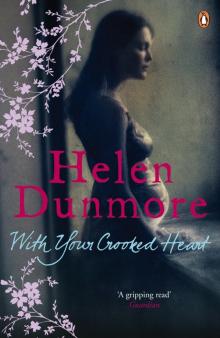 With Your Crooked Heart
With Your Crooked Heart Burning Bright
Burning Bright House of Orphans
House of Orphans Mourning Ruby
Mourning Ruby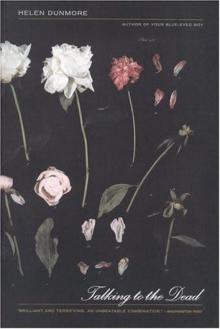 Talking to the Dead
Talking to the Dead Exposure
Exposure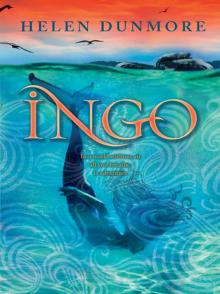 Ingo
Ingo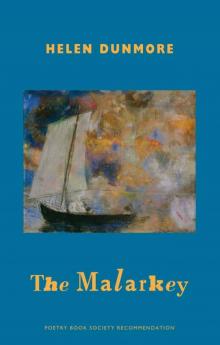 The Malarkey
The Malarkey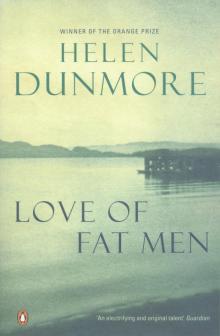 Love of Fat Men
Love of Fat Men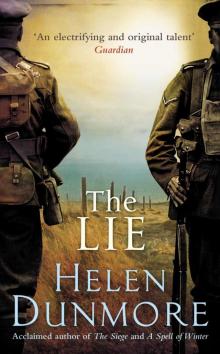 The Lie
The Lie The Siege
The Siege Inside the Wave
Inside the Wave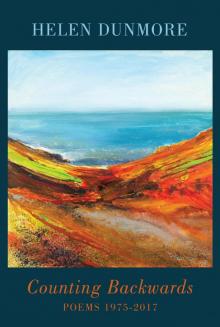 Counting Backwards
Counting Backwards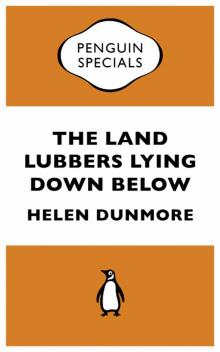 The Land Lubbers Lying Down Below (Penguin Specials)
The Land Lubbers Lying Down Below (Penguin Specials)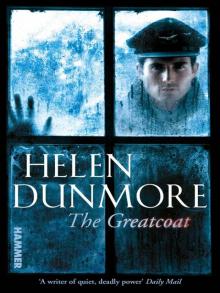 The Greatcoat
The Greatcoat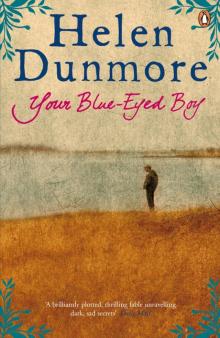 Your Blue Eyed Boy
Your Blue Eyed Boy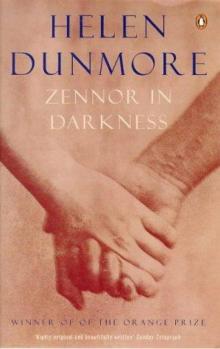 Zennor in Darkness
Zennor in Darkness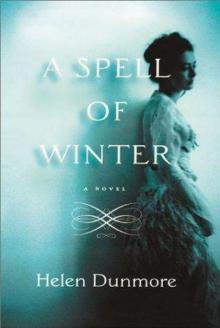 Spell of Winter
Spell of Winter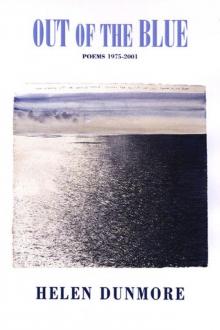 Out of the Blue: Poems 1975-2001
Out of the Blue: Poems 1975-2001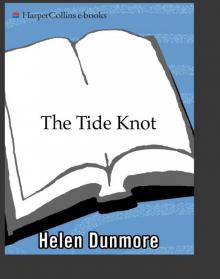 Tide Knot
Tide Knot The Betrayal
The Betrayal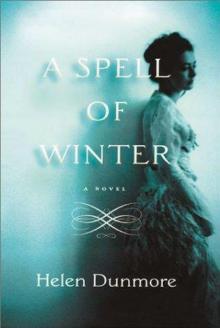 A Spell of Winter
A Spell of Winter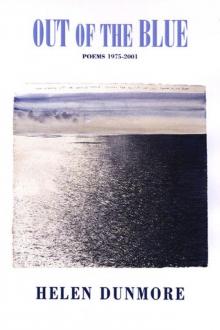 Out of the Blue
Out of the Blue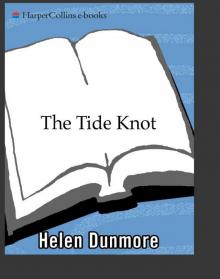 The Tide Knot
The Tide Knot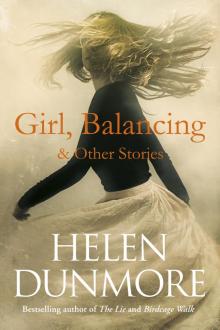 Girl, Balancing & Other Stories
Girl, Balancing & Other Stories Betrayal
Betrayal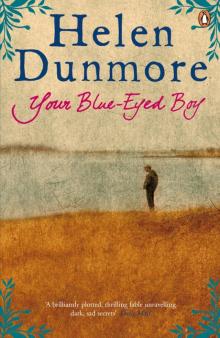 Your Blue-Eyed Boy
Your Blue-Eyed Boy